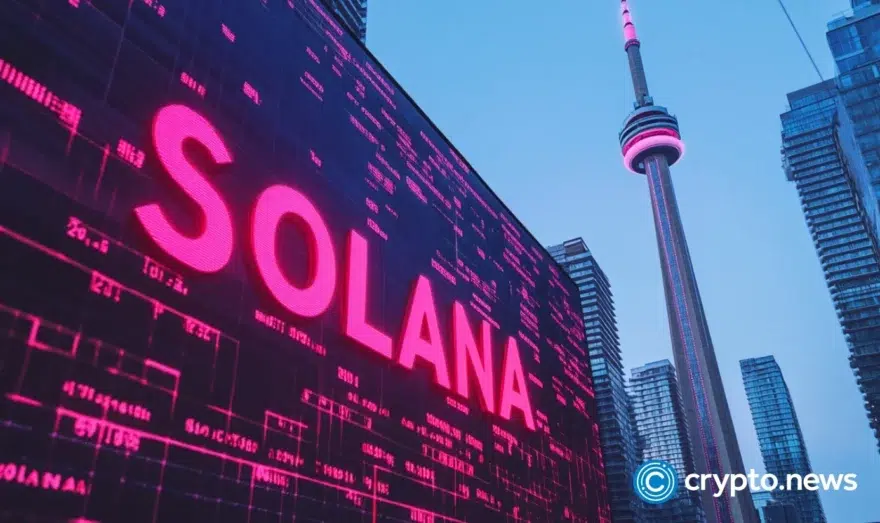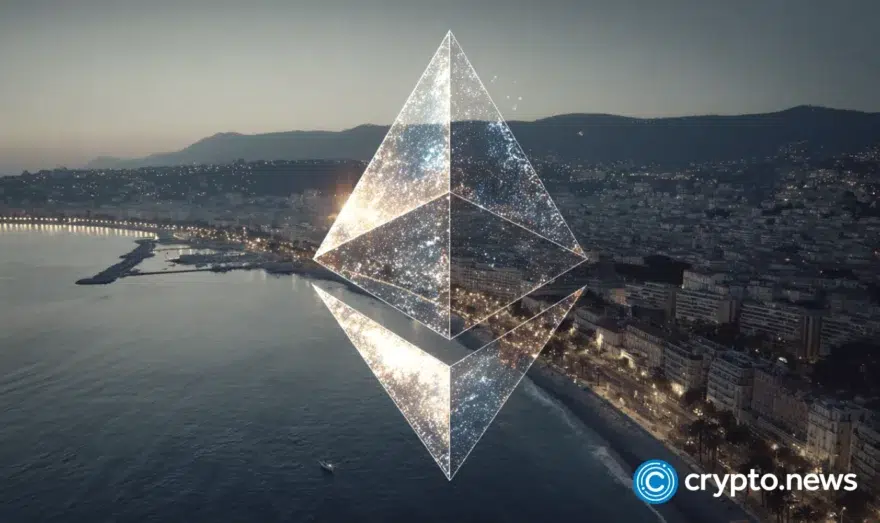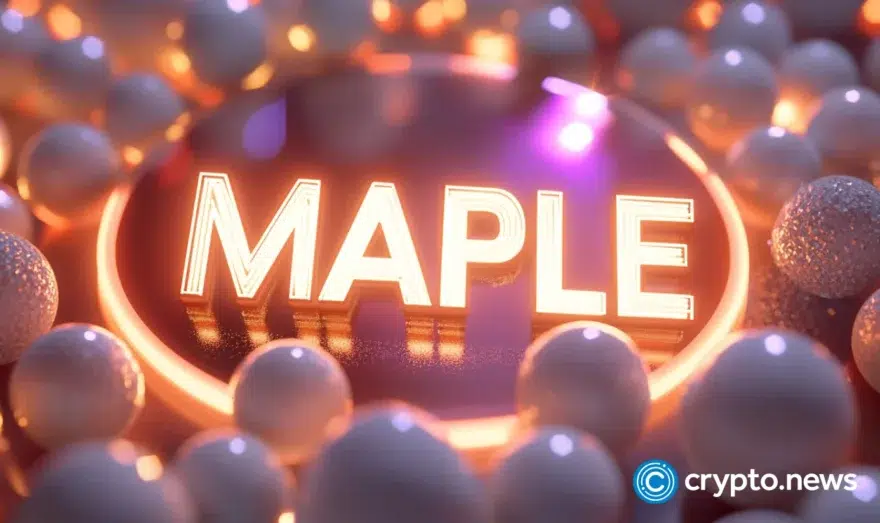What is Ethereum? A comprehensive guide

Learn what is Ethereum and explore its components, including smart contracts, decentralized applications (dapps), and its native token Ether (ETH).
Ethereum is not only the #1 blockchain by total value locked, but it is also the name of the second-largest cryptocurrency by market capitalization after Bitcoin (BTC).
In this guide, we will shed more light on the often-asked question, “What is Ethereum?” Our exploration will look into the key components that make Ethereum tick, from the blockchain and cryptocurrency to the concept of smart contracts and dapps. Read on and have Ethereum explain it to you.
Table of Contents
What is Ethereum?
Ethereum is a decentralized software platform powered by blockchain technology to facilitate trustless interactions. It is essentially a network of computers spread across the globe that follow a set of rules called the Ethereum protocol, which allows programmers to build dapps on top of the blockchain.
Unlike Bitcoin, which was primarily created for financial transactions, Ethereum was designed to be a platform for decentralized applications. The platform was among the first to consider the full potential of blockchain technology beyond just enabling a secure virtual payment method.
It was designed as a decentralized computing network, which has given rise to the decentralized finance space. Ethereum also enables payments using ETH, but its scope is much broader than that of Bitcoin by design.
Ethereum basics
In this section, we will examine the basics of Ethereum, exploring its history and how it compares to Bitcoin, the first and most well-known cryptocurrency.
History of Ethereum
Ethereum was conceived in 2013 by Russian-born Canadian programmer Vitalik Buterin, who wrote a whitepaper describing it as a decentralized platform designed to run smart contracts.
The idea became a reality on July 30, 2015, when the first public version of Ethereum, called Frontier, went live following months of development funded through an initial coin offering (ICO) that raised over $18 million.
The development involved collaboration from the likes of Gavin Wood, Charles Hoskinson, Anthony Di Iorio, and Joseph Lubin.
Throughout its history, Ethereum has undergone several important hard forks, which are upgrades to the network that introduce new features, improve security, and fix issues.
The first major hard fork happened in 2016 after Ethereum’s decentralized autonomous organization (DAO) was attacked and 3.6 million ETH stolen. It led to a controversial decision to implement a hard fork, creating two separate blockchains: Ethereum and Ethereum Classic (ETC).
Other vital updates and hard forks in Ethereum’s history include the following:
- Byzantium (Oct. 16, 2017): It reduced mining rewards from 5 to 3 ETH, delayed the difficulty bomb, enabled non-state-changing contract calls, and added cryptographic methods for L2 scaling.
- Constantinople (Feb. 28, 2019): This update also further reduced mining rewards from 3 to 2 ETH and helped optimize gas costs.
- Istanbul (Dec. 8, 2019): This update optimized gas costs, improved DoS attack resilience, enhanced performance for layer-2 (L2) solutions and enabled Ethereum-Zcash interoperability.
- Beacon Chain Genesis (Dec. 1, 2020): Marked the beginning of Ethereum 2.0 by starting the Beacon Chain after meeting the required 32 ETH deposits.
- Berlin (April 15, 2021): This update optimized gas costs and increased support for multiple transaction types.
- London (Aug. 5, 2021): It introduced EIP-1559, reforming the transaction fee market with variable-sized blocks, and making gas fees more predictable.
- Paris (Sept. 15, 2022): Popularly referred to as The Merge, this upgrade transitioned Ethereum from proof-of-work to proof-of-stake, significantly changing the network’s consensus mechanism.
- Shanghai-Capella (April 12, 2023): This upgrade enabled staking withdrawals on Ethereum’s execution layer and introduced automatic account sweeping for rewards and withdrawals.
- Cancun-Deneb (March 13, 2024): Also known as Dencun, this update introduced EIP-4844 (proto-danksharding) to lower data storage costs for L2 rollups, enhancing scalability and reducing transaction fees. It also included pre-generated exit messages for stakers and capped the validator join rate to limit the issuance of ETH.
Ethereum vs. Bitcoin
When comparing Ethereum and Bitcoin, it’s essential to recognize that these two leading cryptocurrencies were developed with distinct goals and visions.
Bitcoin was created as a digital alternative to traditional fiat currencies. It enables peer-to-peer transactions without relying on a centralized authority like a bank or government. Bitcoin’s primary function is to act as a store of value, which has earned it the nickname ‘digital gold.’
Ethereum, on the other hand, was designed to expand beyond Bitcoin’s financial use case.
It introduced smart contracts, which are self-executing codes that facilitate transactions and agreements between anonymous parties. This innovation enabled the development of decentralized applications on Ethereum. The blockchain’s native cryptocurrency, Ether, functions as both a digital currency and ‘fuel’ for executing smart contracts.
Both Bitcoin and Ethereum use blockchain technology, but their consensus mechanisms differ. Bitcoin uses proof-of-work, where miners solve complex mathematical problems to add new blocks to the blockchain. Ethereum, which initially also used proof of work, has transitioned to proof of stake. This mechanism is more energy-efficient and allows for faster transaction processing times.
Bitcoin also has a much higher market capitalization than Ethereum, with Bitcoin currently valued at more than $1.3 trillion to Ethereum’s $452 billion. However, in terms of transaction volume, Ethereum regularly processes upwards of a million transactions daily, while Bitcoin averages around half a million transactions daily, according to data from YCharts.
Key components
So, how does Ethereum work? At its core, the network boasts several vital components that make it unique. These include its native cryptocurrency, Ether; smart contracts, which enable self-executing agreements; and decentralized applications, which run on its blockchain infrastructure.
Ethereum also uses the Ethereum Virtual Machine (EVM) to execute scripts and support decentralized computing. Together, these components form the backbone of Ethereum’s innovative ecosystem, driving the future of decentralized technology.
Ethereum blockchain
The Ethereum blockchain is a distributed public ledger that records all transactions on the network. It is maintained by a network of computers (nodes) that validate and execute transactions according to the Ethereum protocol.
At its core, the Ethereum blockchain consists of a series of interconnected blocks, each containing a list of transactions. Every transaction involves the transfer of value, execution of smart contracts, or deployment of dapps.
Ether (ETH)
For those wondering what is Ether, it is the native cryptocurrency of the Ethereum network. Unlike Bitcoin, which primarily serves as digital gold, Ether has a broader role. It acts as the fuel for the network, which is necessary for executing transactions and running applications on the Ethereum platform.
Executing transactions and smart contracts on the network requires gas, a unit that measures the computational effort needed. Users pay gas fees in ETH to incentivize validators and ensure the network’s security and smooth operation.
The amount of gas required depends on the complexity of the transaction, and gas fees fluctuate based on network demand.
Smart contracts
A defining feature of Ethereum is its support for smart contracts. These are self-executing contracts with the terms of the agreement directly written into code. They automatically enforce and execute the terms when predefined conditions are met.
These smart contracts run on the Ethereum Virtual Machine (EVM), a decentralized computing environment that ensures uniform script execution across the network. The EVM allows developers to deploy complex dapps and automate transactions without the need for intermediaries.
Decentralized applications (dapps)
Decentralized applications, or dapps, run on the Ethereum network and leverage its decentralized architecture. Unlike traditional apps that run on centralized servers, dapps operate on a blockchain, offering enhanced security, transparency, and resilience against censorship.
Developers can build dapps for a wide range of purposes, from finance and gaming to supply chain management and social networking, utilizing the power of Ethereum’s smart contracts and decentralized infrastructure.
Ethereum 2.0
Ethereum 2.0 represents a significant upgrade to the Ethereum blockchain aimed at enhancing its scalability, security, and sustainability. This overhaul addressed several of the network’s limitations and set the stage for a more robust and efficient decentralized ecosystem.
Its main features included a shift from the PoW to the PoS consensus mechanism, which replaced miners with validators.
The Beacon Chain, launched in December 2020, introduced PoS to the Ethereum ecosystem, running parallel to the original Ethereum PoW chain. It coordinated the network of stakers and managed the consensus mechanism, playing a crucial role in preparing the network for the complete transition to Ethereum 2.0.
In September 2022, the Ethereum mainnet and the Beacon Chain were combined in what is known as The Merge, transitioning the entire network from PoW to PoS. The Merge also ensured the continuity of Ethereum’s history and data while benefiting from the improved features of Ethereum 2.0.
Use cases of Ethereum
So, what is Ethereum used for? The cryptocurrency underpins the peer-to-peer Ethereum financial system, which is accessible to everyone. Aside from facilitating payments on the network, Ether has other use cases on the network, including:
- Gas fees: Ether facilitates payments of transaction fees, commonly referred to as gas and the computational resources required for developing and deploying smart contracts and Ethereum apps such as dapps.
- Powering decentralized applications: Ether is required to power decentralized apps built on Ethereum. The token facilitates staking, yield farming, and governance through voting.
- Investments: You can earn interest by staking Ether and other Ethereum-based tokens on crypto-staking platforms.
As for the blockchain itself, it has found various use cases extending far beyond simple transactions. One prominent application is in decentralized finance (defi), where Ethereum powers a thriving ecosystem of financial services, including lending, borrowing, trading, and earning interest, all without the need for intermediaries.
Ethereum is also the primary platform for non-fungible tokens (NFTs), unique digital assets representing ownership of art, music, virtual real estate, and other creative works.
Sectors such as supply chain management are benefitting from the Ethereum blockchain, which can track the provenance and movement of goods, enhancing transparency and efficiency while reducing fraud.
Additionally, identity management is another area where Ethereum has found use. People can control their digital identities securely, providing verifiable credentials when needed while ensuring privacy and security.
Future of Ethereum
As Ethereum continues to evolve, its future appears promising and could change various industries with its technology.
Ethereum’s transition to Ethereum 2.0 marked a significant milestone, enhancing scalability, security, and sustainability. And with the shift from proof-of-work to proof-of-stake consensus mechanism, Ethereum is becoming more energy-efficient and capable of handling increased transaction volumes.
This upgrade should pave the way for a more robust and efficient decentralized ecosystem, unlocking new possibilities for decentralized finance, NFTs, supply chain management, real-world asset tokenization, web3 gaming, identity management, and more.
As Ethereum’s capabilities expand and its ecosystem matures, it could play a pivotal role in shaping the future of decentralized technology, offering a viable platform for diverse applications.
















